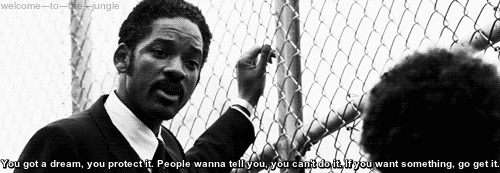
If you have ever written a comment on LinkedIn that says something like “Interested. Please review my profile” or uploaded your resume/CV on a job portal website (or worse, simply clicked “apply”), this blog post is for you.
To start off, here’s my philosophy for job-hunting:
Posting your resume on an online forum is like dropping a coin into a Make-A-Wish fountain. You’re hoping that God will notice your coin from among the 500 others.
– Me
It’s high time you realize that this is not the best plan to bet your livelihood on: Job portals = Make-A-Wish fountains
Job portals = Make-A-Wish fountains
This philosophy is coming from a person who has seen both failure and success. I found a good job after college, and then an even better one after that. At the time of writing this, it’s exactly one year since graduation, and I currently save over 80% of my monthly salary while living a comfortable life with my own money. I don’t have college debt because my parents funded me, but with my current income I could easily have paid it back within 2 years max. To get my second job, I applied to only one company, without any references or referrals to aid me, and got an offer within 2 weeks. To get to this point, I’ve tried all kinds of ways to get employed, and I had several hundred rejections in my first job search which was when I had just graduated from college (most of them were companies I never heard from after applying through job sites). I know a lot of things that work, and most things that don’t. This is nothing brag-worthy but it gives some context as to where this essay is coming from.
My Commitment
It pains me to see unemployed college graduates who just spent thousands of dollars on their education and now struggling to make ends meet. I was once in the same situation myself — I have seen the uncertainty, worry, fear and stress that can come with it. I didn’t know what career path I should choose, or even what I was good at. To save others from similar circumstances, I’m going to do something about it.
In this >4,000 word essay, I am going to present a ZERO BULLSHIT GUIDE to getting a decent job, in any economy, before your graduation. This guide can also be used to find a well-paying part-time gig or internship while you’re still studying, so that you can get yourself through college more comfortably.
Here’s a prediction: 99 out of 100 people who finish reading this will be unaffected by what I talk about here, and go back to watching cat GIFs or consuming “inspiration porn” through motivational pictures on Facebook, without ever doing anything about it.
Today we are not here to read motivational porn. And I don’t give a rat’s fart about 99% of the losers — I only care about giving value to that one person, who will use this advice. Because only YOU will get your dream job straight out of college, no matter what major you had. YOU will pay off your debt much faster than the other people who’ll still be living off credit cards when they’re 30. I’m writing this essay just so I might change one person’s life.
[UPDATE: Just received a message from a 17-year old who found an amazing software development job in the USA, after using the advice in this essay. He didn’t even need a college degree. The purpose of this essay has been fulfilled. :)]
Moreover — if you do try to follow this advice — and it fails to get you a badass job, reach out to me (@mngrwl) and I will personally work with you to land the job you deserve. That’s my commitment to you.
The essay is organized into short articles, each of which is a step in your quest for healthy employment:
- The Mindset
- Identifying what you’re fit for: THE MOST IMPORTANT part of this essay. It’s actually easier than it sounds. Trust me.
- Supply and Demand: identifying a suitable occupation
- The ‘Just Ask’ Method: how to upskill yourself for your dream job
- The Rule of Three: finding the jobs you’ll apply for
- The Secret Door Into Every Job: going straight for the kill and bypassing online applications and recruiters
- The Only Interview Trick You Really Need: this will forever change how you present yourself in interviews
Each step in this entire process could take several weeks. So I suggest that you binge-read this essay for now, and bookmark this for later reference. :)
First, some assumptions and declarations
By ‘job’, I mean doing something that you like, and provides an income which matches your skills. It could mean:
- being a financial analyst at Bank of America
- teaching English in a kindergarten classroom in China
- leading business partnerships at a tech startup
Or anything else that you can imagine.
All good? Let’s get onto it.
1. The Mindset
This was one of the most powerful scenes in ‘The Pursuit of Happyness’ (2006)
Having a ‘humble winner’ mindset will be the biggest factor in this process.
- Finding a job is fundamentally about finding someone that you can help, who is willing to pay for your help. Read that sentence again. It’s about serving. My dear friend, it doesn’t matter how young or inexperienced you are. There is someone in this world who could really use your help.
And as you change throughout your life, the people who need your help will change too — and that is what having a “career” means. You don’t have a career, you just have a life. If you were happy living in a forest all by yourself (nothing wrong with that), you wouldn’t need a “career”. - You are the ONLY ONE RESPONSIBLE for your future, and to a large extent your present situation too. Not society, not your parents, not your friends or girlfriend or boyfriend or professors. Okay I understand that may not be completely true sometimes, bad luck hits us all, but trust me you’ll simply be much better off putting it all on yourself. I’m not asking you to be a saint here, but to be selfish — and I’ll give examples in a second. But you need to burn it in your mind that the only excuse for your failure is that YOU were not smart/careful/prepared/healthy/lucky enough.
Steve Jobs initially quit Apple after the CEO he hired (John Sculley) got the board to fire him. He never forgave Sculley even till his death — but guess what Jobs always said? “I put my trust in the wrong guy.” You see the nuance here? He was implying that it was his own mistake in judgement, and that he should have put his trust in someone else. Instead of simply blaming Sculley, he blamed himself for having hired him.
I once hated a few of my project team members in high school because they didn’t listen to my ideas, were lazy and didn’t do any work either. In the end, I quit the team and they went on to fail anyway. Guess what I got from blaming them? Zilch. Okay, at that time I got a temporary feeling of “yoohoo I was right and you were wrong, see who’s the daddy now, bitches?” It didn’t gain me anything and they only thought, “thank god he quit early or we would have been even more fucked.”
But when I started blaming myself, it lead to a realization – that it was I who had failed to sell them on my ideas. I wasn’t charming enough, and I hadn’t earned their respect enough to motivate them. My bloody fault. Who did I think I was? How could I expect them to just listen to me?! And that’s when I realized I had to work on myself, not on others.
Once you see your own shortcomings, you feel like rolling up your sleeves and do something constructive. So I implore you — if you ever want to blame someone, hate them as much as you want, but take charge of your own life.
Thank you for not being a dick like this guy.
- Believe me when I say that you can get any job that you really want, as long as you are better than (i.e more capable of HELPING) other people at doing it. It’s easy to become better than other people. Just put in slightly more effort. If you can make yourself just a little bit uncomfortable, you’ll be better than others in no time. Because most people would rather die than be uncomfortable.
- You must be willing to negotiate better terms and salary. In some cultures and societies, negotiation might be uncomfortable. So let’s keep it simple- instead of “negotiating”, I’ll teach you how to just ASK.
- Skills pay bills. Be prepared to learn something new if it’s necessary. Getting a better job based on your skills will be worth 10x the effort.
Another note on “helping”. If you go into a job interview looking for a paycheck, you will find yourself feeling pressured to sell yourself and the conversation will feel like an interrogation. But if you go in with “I want to understand how I could best help you”, you will ask them questions that no other candidate is asking. Not only will you stand out in the most positive way possible, the conversation will also feel much easier.
2. Identifying your personality type (SUPER IMPORTANT)
You are different from others, and special. You might have some key personality traits, such as extroversion, agreeability, emotional volatility etc. You might feel that you lack organization, and can have great ideas but not sit down and execute a long drawn plan. It’s all perfectly okay.
You see, psychological research suggests that there are 5 key personality traits and each of them has a higher or lower intensity in different people. I learned this system from an amazing guy named Dr George Watts.
- OPEN MINDED: being creative, artistic, inventive, having more imagination. On the shadow, they can be disorganized, lack focus, be disobedient and rebellious.
- EXTROVERT: gregarious, social, optimistic, energetic, charismatic and persuasive. Like Oprah. On the shadow, they could be emotional, attention seeking, poor listeners.
- AGREEABLE: good natured, diplomatic, trusting, considerate, harmonizers, and cooperative. They don’t like arguments and confrontations. On the shadow, they can be naive and find it hard to say no, and might not come across as ‘tough’.
- CONSCIENTIOUS: diligent, hard working, disciplined, focused, systematic and responsible. On the shadow, they can be rigid, unimaginative, unwilling to change and not adventurous in trying new things.
- EMOTIONALLY STABLE: analytical, level-headed, cool, and logical. On the shadow, they could come across as uninspiring, lacking empathy, critical or inflexible.
Again — each of these traits (and the trait’s shadow) can express itself in varying intensity. Everyone has one or two traits as definitive of their personality, and at least one trait which is their weakest. For example, I consider myself emotionally stable and a little open minded, but I am totally not conscientious or agreeable.
By the way, “accepting your personality traits” doesn’t mean you’re allowed to be an asshole. If someone is a jerk, it’s not a “key personality trait”, it simply means they’re a fucking jerk.
The important thing is to identify your own unique traits and shadows, and then find a career which allows your traits to blossom. If you’re more of an inventive or disciplined worker type, don’t force yourself into a core sales job cold calling people or doing presentations. You’d be better off to leave that to an extrovert and instead focus on things like software development or legal services or writing. This is not to discourage anyone or an attempt to create ‘rules’ for who should get what job. Your career is an important part of your life, and I’m nobody to tell you how you should live your life. What I’m saying here is that whether you are looking for a job or looking to hire someone else, it’s often better to play by strengths than weaknesses.
Something funny that happens to all of us (okay, many of us):
- You read an article like “how to wake up early” or “how to organize your day to be most productive”
- You get super pumped to try it in your life the next Monday.
- On Tuesday, you silently weep and curse yourself because you couldn’t keep up with a new habit even for 2 days.

It never ended well for me, because I realize that an organized behaviour and waking up early are not suited to my core personality traits. So I stopped hating myself for not being able to develop such habits — and so should you. Everyone is different, and what works for them might not work for you.
Albert Einstein was a super open-minded and creative person, but he had zero organization in his life. He had a super messy room and couldn’t even keep his papers neatly together. Barack Obama is never referred to as being a visionary leader who has big dreams or ideas (maybe except Obamacare), as opposed to someone like Mao Zedong, China’s biggest leader of the 20th century who turned an entire nation upside down. Obama is inherently an introvert and emotionally stable person. He relies on his discipline, hard work, empathy and affection to inspire other people.
The key takeaway here is that you have to find your own style. Sure, it’s important to work on your ‘shadows’ — for instance, I read books like Dale Carnegie’s “How to Win Friends and Influence People” to learn to be more agreeable. I try (and fail) to use to-do lists and notepads to track and manage my life. But I know it will be a slow process which will take forever, and I don’t have to rush into becoming organized.
If you lack discipline, the way you can develop it is to identify work that aligns with your traits, and pursue it. I can watch Marvel movies back to back, for hours. But make me watch a slow romantic film and I’ll fall asleep within 30 minutes. When you love what you’re doing, you’ll automatically be able to devote more time and effort to it.
3. How to identify what job you want: Supply and Demand
We’ve all heard students say this: ‘Naw man, I don’t have any idea what I want to do or even what I can do. I just want a job.’
The biggest reason for an unsuccessful job search is usually a lack of clarity about what you really want to do.
Listen —it’s alright. Most people don’t realize that well into their middle ages (is that what you call it, “middle ages”? I meant 30 years and older…). That’s because they rely on some flash of inspiration or self-discovery to come to them someday. Reading motivational/sentimental quotes like “everyone takes their own sweet time to find out what their purpose is” also doesn’t help.
Not knowing your purpose is a challenge but I’ll show you a systematic way of finding a substitute purpose which can pay the bills for you while also keeping you reasonably happy.
We will look at the job market and try to answer the following questions: Where is the best place for you to apply your personality traits? How can you find a job that fits you?
Once again, finding a “job” isn’t about finding someone who can pay you because you need the money. That’s a fundamentally flawed mindset. Finding a job is about finding someone WHO NEEDS HELP, WHOM YOU CAN HELP. It’s about serving. Watch this video:
(And for the category of people who want to keep waiting for inspiration before they start “working hard at something they don’t like”: Dude, you’re broke and sitting at home. Screw your god-ordained purpose in life for now, that flash will come when it has to, and you won’t need my advice then. Right now, find a job that fits your skills and personality and pay the damn bills with dignity.)
 Acquire skills which suit your personality, have high demand and low supply.
Acquire skills which suit your personality, have high demand and low supply.
- At least ask yourself what kind of ‘lifestyle’ you want in and out of work. This is directly related to your personality traits discussed previously. For example, do you want to wear a suit to office and work on a desk, or travel a lot, something which involves a lot of social interaction, etc etc.
- For any chosen ‘lifestyle’, do a few “how to” Google searches and see different paths to that lifestyle. For example, “jobs that allow you to travel”? I don’t know what you fancy :)
- If you don’t even have a clue about #1 and #2, well, I think you might just be lucky. I suggest that you search Google for “skills shortage” for your country/region. You’ll probably find some interesting news articles. Also, most governments prepare a list of high-demand occupations in which qualified and capable individuals are in short supply.
- Apart from skill shortage lists, also check out online job boards. Browse through one generally, and try to make a mental note of job titles which appear more often. Don’t think about whether you’re qualified for them or not — that is unimportant. The goal is to find what looks interesting to you. Whenever you find a name of an occupation that you don’t know much about, do a web search and look at what it’s like to be in that career. Unless you’re a dumb duck, you’ll eventually notice at least ONE occupation that interests you.
If you still don’t find anything, I’ll make the choice easy for you — become a software developer to start with. There are a gazillion companies fighting each other to find the best developers each year, there’s a MASSIVE skill shortage in most countries, and salaries are good. There just aren’t enough good developers! It’s a pity, because software development is actually an easily learnable skill. You can get a job as a front-end developer within 6 months of learning from zero, without the need of any college degree. I kid you not! - Now that you have kinda-sorta identified at least one occupation which has a high demand and sounds interesting to you, it’s time to move on.
You don’t find your passion with your mind, but with your hands and feet. Start trying different things and work hard on them. Don’t sit in a chair daydreaming about your “passion”.
— Me
4. The ‘Just Ask’ Method: preparing for the occupation you chose
You have identified a few occupations you’re interested in.
But you’re not prepared for them already, right? If you were, you wouldn’t be here. So you need to acquire those skills. And I’m telling you this: from public speaking to programming, everything is a learnable skill. With enough practice, even a quality which seems to be against your personality type can be developed to a high degree.
Confidence is a skill which can be acquired with practice. So is negotiation, so is selling, software development, or the ability to learn a new language. Moreover, in this present age, you can learn almost anything online.
I believe that Udacity is a good place for technical skills, and Coursera/edX/Udemy or simply individual blogs for everything else.
 Use online education to learn high-paying technical skills.
Use online education to learn high-paying technical skills.
How do you know if you’ve become skilled enough at a job? There’s a simple test: Find out about influential people at the top of your field, and read what they have to say to each other.
For example, if you’re into photography then read photography blogs/books/interviews from or about leading photographers in the world. If it makes sense to you and you feel you can 1) apply their ideas into your own work, and 2) have an intelligent discussion about their work and ideas, then you are surely capable/smart enough to get a decent job in that field.
There’s more than enough information on the internet about how to go about learning any skill. Look up Google, search Quora.
OR, find a job posting you like, google the company, go to LinkedIn and find who you should contact if you want to ask about the job. Write to them and ask for guidance on what you should learn to get there. They’ll be MORE THAN happy to guide you, I promise.
For example, if you want to be on the marketing team at McDonalds’,
1. Find a very senior marketing guy at McDonalds you want to work for, on LinkedIn. Read about him and his work.
2. Find his email or twitter handle. (You can Google for guides on how to find someone’s email address)
3. Reach out to them nicely to ask for advice.
But be careful: don’t waste more than one day on ‘planning’ how you will learn. It’s better to directly jump into learning. Find online courses, read blogs, watch videos, and buy popular books. Better to just start learning than keep adjusting your approach than to sit around doing nothing.
Now — it’s up to you to put in the effort, and learn new skills.
Only when you’re at this stage, when you’re learning something new, practicing every day, and failing every now and then, are you allowed to read “motivation porn”. Read quotes and stories from other people in your field, for inspiration. Share as many “never give up” pictures as you want to. NOW is the time to seek motivation. Keep practicing and learning.
5. The Rule of Three: finding a job opening
When you’re skilled for the occupation you want, you’ve finally arrived at the big next step — finding a job.
Good starting points for you could be LinkedIn, Angel.co (awesome for startup jobs) etc. Use Facebook and Twitter, search for “jobs” and follow pages/groups that seem useful.
You will identify only 3 companies that you want to work for.
This is a strict rule — ONLY THREE COMPANIES. We’re not going to click ‘apply’ on 100 job postings and hope to find 1. We don’t do that, bro. Remember the mindset? YOU CAN GET ANY JOB YOU WANT. And based on step 3, I’m assuming you have already been investing in training yourself.
Therefore, you don’t have to spray out your resume on every job portal you can find. We will only go for your 3 dream employers and go so hardcore that I’d be surprised if you don’t have at least one offer by your 3rd attempt. Even if not the first 3, we’ll go after the next 3. And by then, if you still don’t have a job offer (assuming you have good skills and are not a dick) I will personally help you get the job you deserve, for free.
A quick note here about visa sponsorship. If you’re looking for a job outside your country and will need a visa, then that makes the whole process more difficult. Now you will really have to prove yourself to a particular employer, and also check the visa rules of the country. Sometimes, companies’ hands are tied because of the law. They can’t hire you even if they love you. Or, they could sponsor your visa but they found someone slightly less qualified locally, so they’d rather hire that person than go through the bureaucratic hassles of getting you relocated. Be smart and realistic about the country/company you apply for jobs in.
Steps:
- Look at the job portals etc that are relevant in your field
- Find companies/jobs which excite you
- Filter them out to find a job description which you think you can fit (don’t worry about descriptions that ask 3–5 years of experience — it’s part of the bullshit that recruiters say to reduce the number of resumes they have to look through)
- Don’t click on anything, don’t do anything. We don’t do resume submissions, we’re more hardcore than that. Just find the 3 jobs you love, and move on to the next step — secret doors.
6. The Secret Door
Every job post on the internet has a human behind it. That human is looking for help. If you see a company looking for engineers, there’s probably a director/VP of engineering or some “head of X” who wants to find people who can help her. We are going to spend a MINIMUM of 5 hours on each job we apply to. It’s called the ‘give, give, give, take!’ methodology. You first GIVE value for free, to impress them. Everyone has a ‘reciprocity’ factor built into them — if you do enough for someone, they feel indebted to you and want to help you back.
The key here is to find the decision maker who will hire for the role you want. It’s the person you’ll be reporting to or be supervised by. It will be someone who has a vested interest in making sure that the job opening is filled by the most capable person. THAT’s who you’re going to target, and often the only way to target them is to do a completely cold outreach.
We will write them a cold email like this:
Subject line: Use a short, simple subject line which would catch their attention. For example, “Handling partnerships at %company name%” (if say you want to handle partnerships). I’ve also had a lot of success with very simple ones like “Quick question, %name%” or “Just saying hi”. Search the internet on how to write good subject lines.
Body of the email: This is not an exact email you can copy, but rather the inherent message which should come out. The actual email should show you as an excited, likeable, funny human being — not a professional machine. The email will be divided into the following three messages:
- I saw that you were looking to hire a YYY for your team at %company name%. OR- I saw that %company name% was hiring a YYY. By the way if I’m mistaken, could you please forward this to the suitable person at the company?
- I have a few ideas on how I could contribute, and I’m preparing a document detailing all my strategies and ideas, completely free for you and your team at %company name% to use, attached with this email. OR- …I’d love to prepare a project showcasing my skills in Android performance optimization, which you can see at this link. OR- …I have created a sample UI design for a new feature on your iOS app etc. (The idea is to give away something of value, for free. And creating this thing will take you a lot of time — but I want you to PUT IN the effort. Effort always shows.)
- Is there’s anything else you’d like me to add to it? Would be happy to help.
- If you think it’s valuable, I would love to discuss joining your team. Do let me know what you think? Thanks!
Essentially, you offer to do a little piece of valuable work for free. When you portray yourself as someone willing to help and willing to be selfless, you’ll have a raving fan in that company even if they can’t hire you at the moment. Everyone likes to get value for free. And in the beginning of your career, doing work for free is a good way to get experience, build connections and avoid boredom. During a job search, not doing anything productive to do can cause a lot of stress and despair. Better do something to get you closer to your job.
By the way — if you don’t get a response within 2–3 working days, send a follow up email as a reply to the same email (or forward it again to the same person) saying, “Hi X! I was wondering if you had the chance to review my previous email? :)”
…Sometimes email IDs are freaky. Your email might have landed in spam, so don’t lose heart! After one week, try to send the same email to a new contact at the company. Don’t be afraid to go higher up their organization ladder. I’ve sometimes written directly to Managing Directors and CEOs etc and received polite responses. What do you have to lose?
If you really don’t get a gracious and appreciative response (even if they reject you it should be very polite) after a few attempts, don’t be disheartened — that company/person can go fuck itself. You wouldn’t enjoy working there anyway — what kind of jerk deliberately ignores something like this? Move on to the next company on your list.
Once you get through this step and a company is interested in interviewing you or discussing further, you’re in. Now just take care of the interview and don’t screw it up.
7. The Only Interview Trick You Need
I’m assuming you know your technical stuff, and can anticipate the job-related questions. This is not about those. This last tip is about presenting yourself.
Here’s the trick — before the interview begins, imagine that the interviewer is your colleague, and that you’ve already worked with him for over a year. So you’re good friends who chit-chat before discussing work.
Pretend to yourself as if it’s just another work-related conversation with this colleague. How do you greet an old colleague/friend? Not too formally, right?
The moment you tell yourself this, you’ll instantly lose all nervousness and be much more confident. When you enter you’ll give a big smile, and say ‘hi’ with a lot of warmth and energy. They are your friends, so you’ll first do some small talk like ‘how are you?’ or ‘wow, it’s so hot outside today right?’
You’ll be having a CHAT, not an interview. And they will love talking to you, more than the other boring, dry candidates. You can laugh and smile and enjoy the process. You’ll create a personal connection which is ALL that matters. And once you have that, they won’t even bother that much about your skills or experience. They’ll already have started liking you and want you on their team. BAM, you’re in!
If the interview is very difficult and you feel like it’s going badly, don’t freak out. At the end, ask them for feedback and their honest opinion about whether you’re a good fit. Is there anything that you should work on? If you’ve been nice, they might give it to you straight and tell you if they can hire you or not. Ask them if they’d like to restart the conversation again in future. Ask if you could do a free homework assignment of their choice to prove your skills. Remember — it shouldn’t feel like a rejection if there’s a genuine gap in your skills. Instead, it is an opportunity to improve yourself and get even closer to that job. Mindset matters!
Summary
- Introspect on your personality and character, and strive to find a career that your heart can love. Nobody else can do this for you. ^_^
- Find a gap in the market by doing research — what is in demand, and relatively short in supply.
- Invest in yourself to acquire the skills related to the occupation you like. If you find that it’s not that great, quit and find another occupation. But keep learning and trying to find something you’re really good at.
- Get in the door by a direct approach, instead of hitting the apply button on job portals which probably use automatic filtering to screen resumes. Don’t get into that queue.
- Identify a decision maker, create valuable piece of work for him, give it for free, and ask nicely for an opportunity. Follow up if you don’t get a response.
- When you get an interview, act (think to yourself before the interview) that you have already been working with the other guy for over a year, and that you’re great buddies. Just relax and approach it like a chat.
Wow, you’re still reading? If you made it this far, I am with you. All the best!
If you have something to say, write a comment. I want to know what you think.


